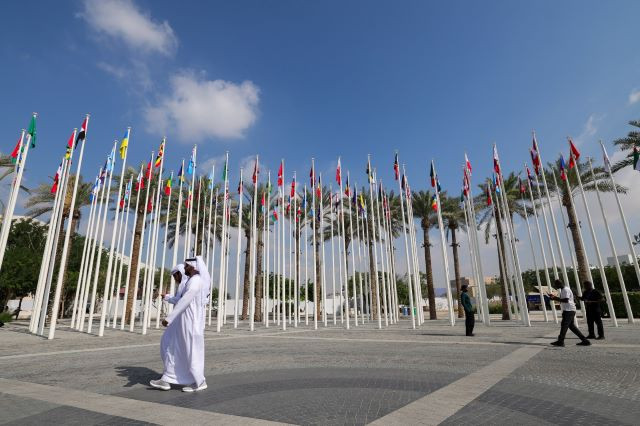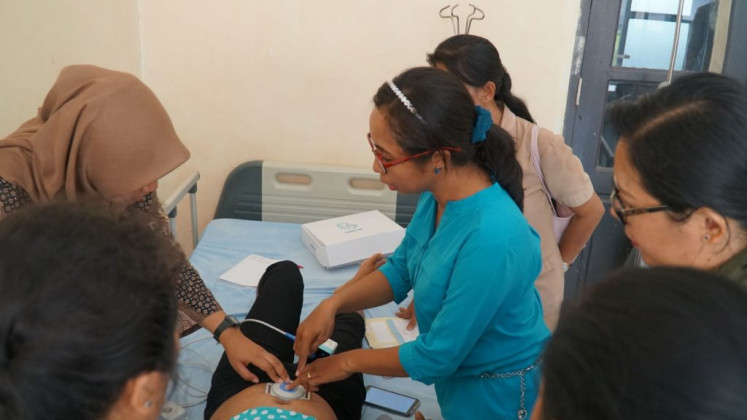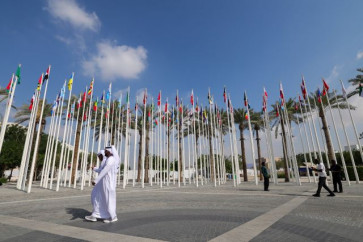Popular Reads
Top Results
Can't find what you're looking for?
View all search resultsPopular Reads
Top Results
Can't find what you're looking for?
View all search resultsCOP28: Charting the course for Asia
According to the Center for Strategic and International Studies (CSIS), Southeast Asia will need a minimum of $367 billion to stay on track to achieving its decarbonization objectives over the next five years.
Change text size
Gift Premium Articles
to Anyone
E
nergy serves as the backbone of human and economic progress globally. However, the escalating consumption of fossil fuels has led to a surge in carbon dioxide emissions, causing climate change.
The impact is notably severe in Asia, with numerous weather-related disasters disproportionately affecting the region. According to the World Meteorological Organization, Asia had 81 such disasters in 2022, 83 percent of which were floods and storms, claiming over 5,000 lives and causing damage of more than US$36 billion.
Individuals in vulnerable communities, exemplified by Surmi in Indramayu regency, West Java, experience the adverse effects of climate disruptions. When the government initiated the development of the Indramayu 1 coal power plant near Surmi's home, it resulted in the release of pollutants that damaged her eyes and caused her to suffer from a persistent dry cough due to dust exposure.
Surmi and many others in Indramayu are suffering from various ailments due to severe air pollution. Fish are dying because toxic chemicals are being dumped into surrounding waters, affecting the food supply chain and jobs.
Transitioning to renewable energy not only addresses these issues but also paves the way for a more just and equitable world. It ensures widespread access to employment opportunities and electricity for all, fostering a more sustainable and inclusive global community.
But how practical is it for developing nations in Asia to completely phase out fossil fuels by 2050?
Asian countries have made progress in adopting renewable energy, but the transition away from fossil fuels remains challenging for developing nations like Bangladesh, Indonesia, India and the Philippines. China and Japan, in particular, heavily rely on fossil fuels, with over half of China's 2022 power generation from coal. Japan's reliance on coal and gas hinders its capacity to meet the growing demand for renewables.



















